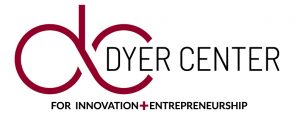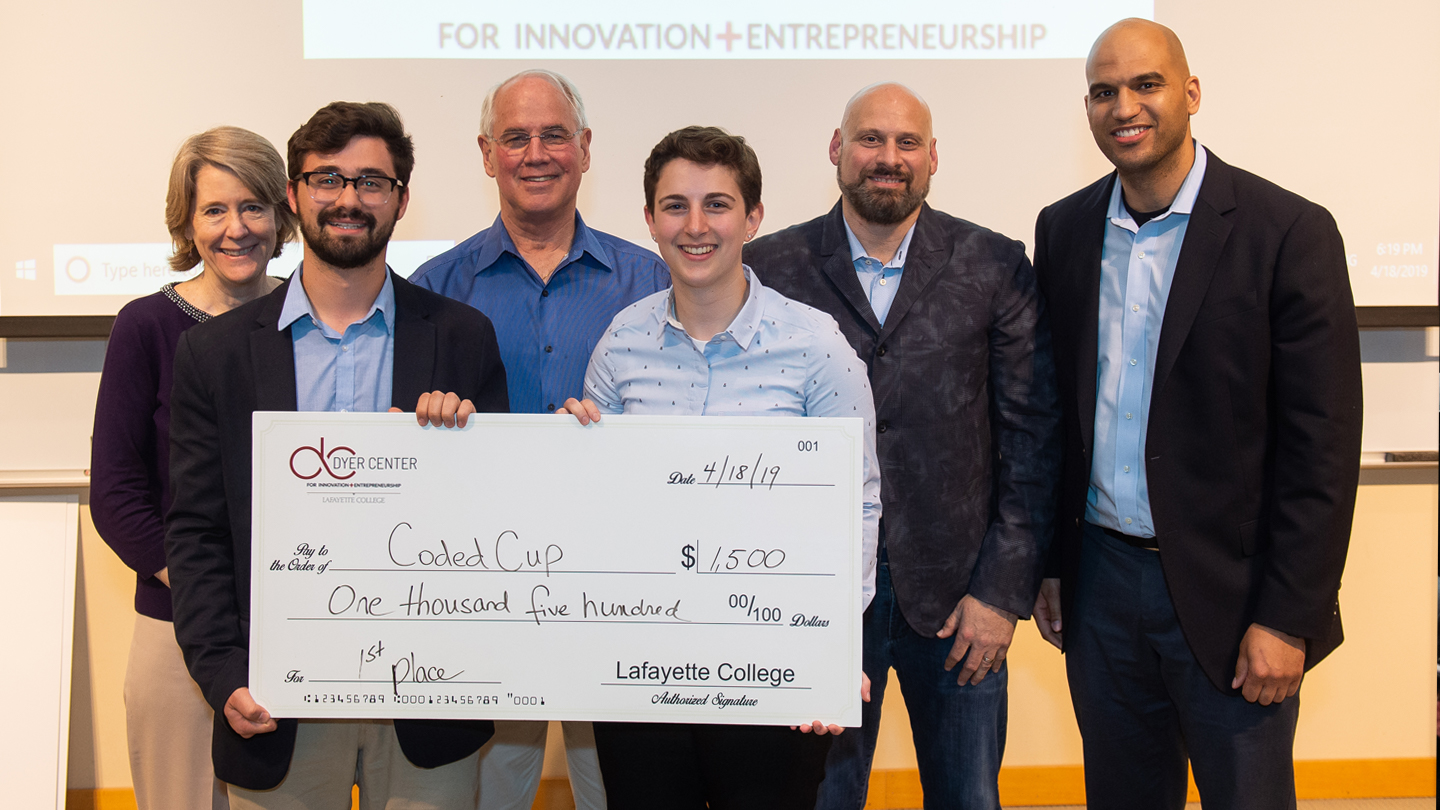Open for Business
The football helmet. The Wall Street Journal. The zipper. Dramamine. Fetal heart monitor. Psychology Today. The IBM personal computer. Lipitor. Levi’s. V-chip. LogMeIn. Vineyard Vines.
Founders, inventors, developers, and leaders—Lafayette grads have a long history of innovation and entrepreneurship.
 While that spirit has been innate to so many men and women who have climbed College Hill, creation of a center dedicated to students who seek to ignite exemplary careers through creativity, innovation, and entrepreneurship has begun only recently.
While that spirit has been innate to so many men and women who have climbed College Hill, creation of a center dedicated to students who seek to ignite exemplary careers through creativity, innovation, and entrepreneurship has begun only recently.
It started with a foundational gift from Trustee Donald Morel Jr. ’79 P’18 and wife Lauren. The original concept, known as the Center for Innovation, Design, Entrepreneurship, and Leadership (IDEAL), gave students an opportunity to use liberal arts perspectives across multidisciplinary teams to solve real-world issues.
“It is so important for this center to succeed,” says Morel. “For graduates to survive in today’s marketplace it’s imperative for the College to provide a dedicated space for them to explore ideas, work in diverse teams, develop strong business plans, and drive those ideas forward without the undue risks for failure that they will encounter in the real world.”
The IDEAL Center was a central laboratory and studio for students and faculty.
One early project had eight students representing four different majors come together to create a simulated startup company, UPower Technologies, that integrated piezoelectric and LED technologies into a recreational, educational, and rehabilitation device called the GameGlowb.
I believe the College has all of the right ingredients to build a best-in-class entrepreneurship program.
-Bradbury Dyer, III ’64
It worked by using a piezo beam to generate a charge from human motion. The charge was stored in a capacitor, and once the capacitor was full, it discharged, turning the LEDs red and sounding a buzzer.
Another project brought conservation together with nanotechnology. Combining art, chemistry, and environmental science, students learned art restoration in the classroom and then observed it in Italy.
The center moved in new directions when the College named Yusuf Dahl as its first full-time director. Dahl quickly recognized the assets at Lafayette: students who can compete on the global stage, an engaged alumni network, and an administration seeking a robust program that bridged curricular, co-curricular, and experiential learning.
The program soon involved students in events, competitions, and business and financial basics, thanks to a partnership with faculty, community members, and alumni. Early highlights included the addition of student fellows, an elevator pitch competition to alumni, and visits from the president and CEO of Levi Strauss & Co., Chip Bergh ’79 and CEO and president of LogMeIn, Bill Wagner ’89 .
Another crucial supporter, Bradbury Dyer, III ’64, who had previously funded Marquis Scholarships at Lafayette, also stepped up to the plate. Dyer noted that global competition and technological advancements were disrupting the nature of work. Creative thinking and entrepreneurial risk-taking were also becoming increasingly valued in the workplace. As a result, innovation was needed to address many of our nation’s most pressing domestic challenges.
Dyer recognized that Dahl shared this belief and could navigate the challenges involved in creating an educational experience for students interested in innovation and entrepreneurship. Thus, Dyer made a multimillion dollar gift to create the Bradbury Dyer, III ’64 Center for Innovation and Entrepreneurship at Lafayette.

Dyer Center Business Pitch Competition winners Alexander Homsi ’19 and Rebecca Adelman ’19 earned first place for Coded Cup, an application that uses augmented reality to display measuring units on any container. Pictured with the winners are competition judges (L-R) Kathleen Williams P’15, Roger Newton ’72, Paul Staubi ’88, and Dyer Center Director Yusuf Dahl.
“I believe the College has all of the right ingredients to build a best-in-class entrepreneurship program,” says Dyer. “Top-notch programs require talented students, involved alumni, enthusiastic faculty collaboration, and support from the highest levels of administration.”
Since then the Dyer Center has rarely had an idle week.
In connection with global entrepreneurship week, the center held Innovation Week, hosting a series of events and activities that brought voices and perspectives from across industries. Alumni, parents, and senior executives joined panels and led talks and programs on design, innovation, automation, intellectual property, entrepreneurship, and real estate.
A recent highlight was a Real Estate Competition co-hosted by Gateway Career Center. Three teams took shape from over 70 students who participated in a real estate boot camp. Over the course of a Saturday, boot-camp participants moved through a crash course in real estate, pro forma review, the role of student housing in campus life, developer and investor perspectives, and public-private partnerships.
The three teams then presented their approach to a campus expansion case study to a panel of industry-expert judges. Winning students walked away with a $1,500 check.
Soon alumni and supporters like Bergh raised the stakes for student success as he supported their “next big idea” with the Bergh Summer Accelerator. Over a 10-week period, two selected teams will attend meetings and workshops and receive mentorship and advising through a network of Dyer Center faculty, staff, seasoned entrepreneurs, and technology experts, with the ultimate goal of transitioning their startup ideas to practical ventures.
“Our ambition from day one has been to build a center that is best in class for innovation and entrepreneurship,” says Dahl. “When you look at centers that are leading the way in providing opportunities for students, a critical component is
the summer accelerator experience.”
If key experiences are important to entrepreneurial success, then so is space to work. The Dyer Center soon will have new digs to call home within Rockwell Integrated Sciences Center.
Students will have the space to build, design, and prototype. Adding that strength to the curricular and co-curricular elements, students will be poised to make a global impact—to think creatively, take intelligent risks, and ignite their careers.